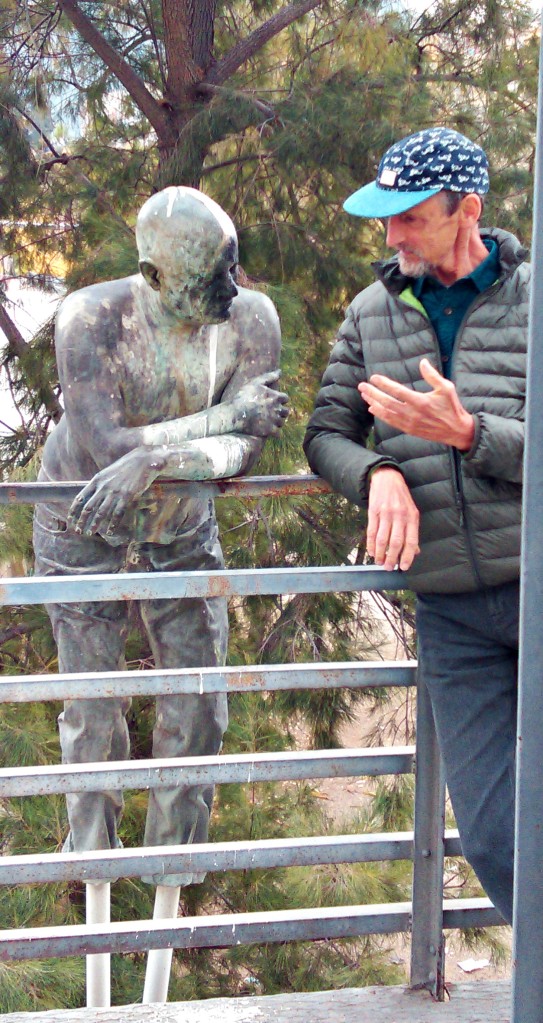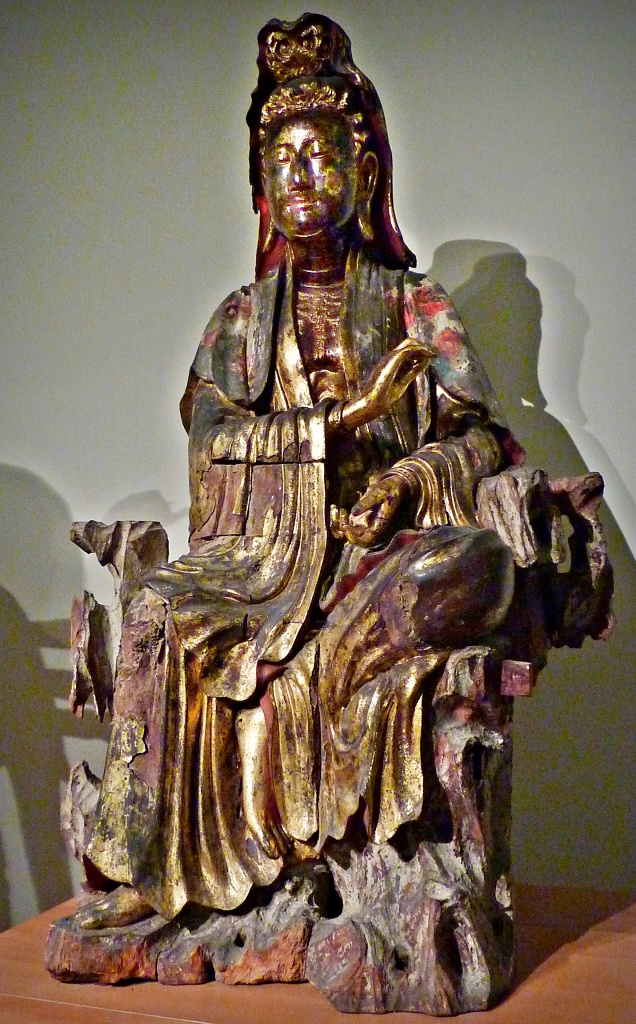
If we ask ‘Are Awakened beings real?’, we are faced with the question: what do we mean by “real”? That’s fairly simple if we hold the view that a person begins at conception and ends at bodily death: we can expect at least that it’s possible to know if someone exists — although we never know if all our acquaintances are still alive. But it might not make sense to be limited by such a view.
It becomes important to know why we are asking the question. At what point does it matter whether someone we are relating to is “real”? We might be inspired by a historical figure, or one who might be mythical. In this instance our concern is whether an “Awakened being” can have an effect upon us, and whether we can have a genuine relationship with them.
death? rebirth?
Let’s look at how we relate to people already, how they affect us, and what sort of ‘reality’ this depends upon. Firstly it’s obvious that our relationship with a person, our perception of them as being a person, does not disappear at the point when they die. We still have the notion of them as a person, simply one who is inaccessible to us, one whose story has ended. Well, that’s unless we think of them as continuing after death, in whatever way we conceive of that.
If we assume they will be reborn, or more specifically that a birth will occur based upon the accumulated karma of that person, then we realise we are beyond our understanding already. What could be the “person” which appears as more than one lifetime of appearance and actions?
We do not even need to look beyond death to find that we have the same uncertainty. We happily take as a single person something which we know changes from moment to moment, in body and mind. Are we thinking of the person we last saw? How much did we know of them then? Are we building up a picture of them through everything we know about them? Or is it something simpler we intuit?
I heard an account of a liver-transplant patient who, after the operation, manifested many characteristics of (it turned out) the liver donor. Maybe heart transplants can have similar effects. The hypothetical question of who you’d be if you had a brain transplant is more relevant than we may think. Some badly burned people have had what is termed a “face transplant” – they look like a different person even to themselves in the mirror… imagine that.
who is a person to us now?
It might help to ask ourselves how people appear to us presently, and what effect that has upon us. How do you respond to –
- a living person you know who is not present
- someone you know who recently died
- a historical person you are fairly certain existed
- a fictitious person known well to you, say from a TV ‘soap’ or a book
- a public figure, e.g. in politics or entertainment – of whom your knowledge is second-hand
- a legendary figure you assume existed: examples differ from country to country, say Robin Hood, Jesus of Nazareth, Padmasambhava
- someone apparently real but unknown to you, such as a homeless person pictured in a charity leaflet, or someone on TV in a war zone?
If you respond to them as being real, what is that based upon? How much needs to come from them for you to respond to them as real?
None of these people are in your immediate sensory experience. You may not know (or may be wrong about) whether they “exist” at all – nevertheless they may have an effect upon you. We are getting used now to responding to a “person” via very little information: email exchanges, Instagram or Facebook posts, tweets – even “deep fake” videos. “Chat rooms” are another place where someone may not actually be the person they present themselves as being. Yet we know how real a person can seem in any of these cases – and now there is “A.I.”, physical or screen-visible robots, chat-bots, or simply the automated messages on the phones of many businesses.
is it them — or us?
It begins to look as though the place where any of these people ‘exists’, is in our minds. That is where the reality or not is assumed. And that is certainly where it counts – that is what we act upon. We emulate someone, act upon their advice, feel accountable to them, respect them – can we even love them? They can stir our emotions, affect our thoughts, and guide our actions, just as much as any more physically present relationship can.
Is that the key element here: relationship? In whatever form we encounter a person or the appearance of one, what counts is whether we relate to that ‘sign of a being’. This can be true for imaginary beings too – from “voices in the head”, to spirit guides, to envisioned archetypes of Awakened characteristics. If we consider it, how we relate even to objects in the world is what governs their value to us. Things do not have intrinsic meaning, they have meaning to us personally. We can give this consciously, or be unknowingly affected by these meanings.
I learned when my father died that each of us, his offspring, had a different experience of him, and a different relationship. There is a self-and-other element to relationship, but each person in a relationship has their own version of it: it is effectively “one person, one relationship”. We each had our own relationship to the family home too; I don’t think the house cared.
how to use this openness?
We can choose whether to use our ability to come to know (create?) a defined legendary figure as a person to whom we can relate. We can use that to our advantage, as has been done for millennia… or we can dig our heels in and reject anything we cannot know as a living physical presence. If we do the latter, do we apply this to the internet ‘people’ we come across, to acted characters, to everyone not materially verifiable? Somehow I doubt it.
What we need is an idea of the ‘other person’, then we can relate to their qualities (as perceived by us). There is a huge power in personifying qualities – which are, after all, qualities of a person – so that we can respond to them. Angels, devils, saints – it’s not only Buddhism which uses this method. Your path, your choice.

Coming soon: verse “Invisible Me”

I feel really connected to <ou when I read this – xxx Agnes
LikeLike
Yes, how real the connection feels between two persons – neither of whom know how they are a person!
LikeLike